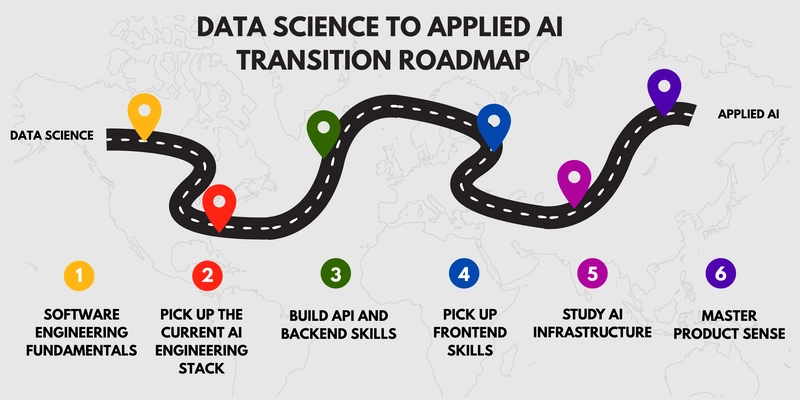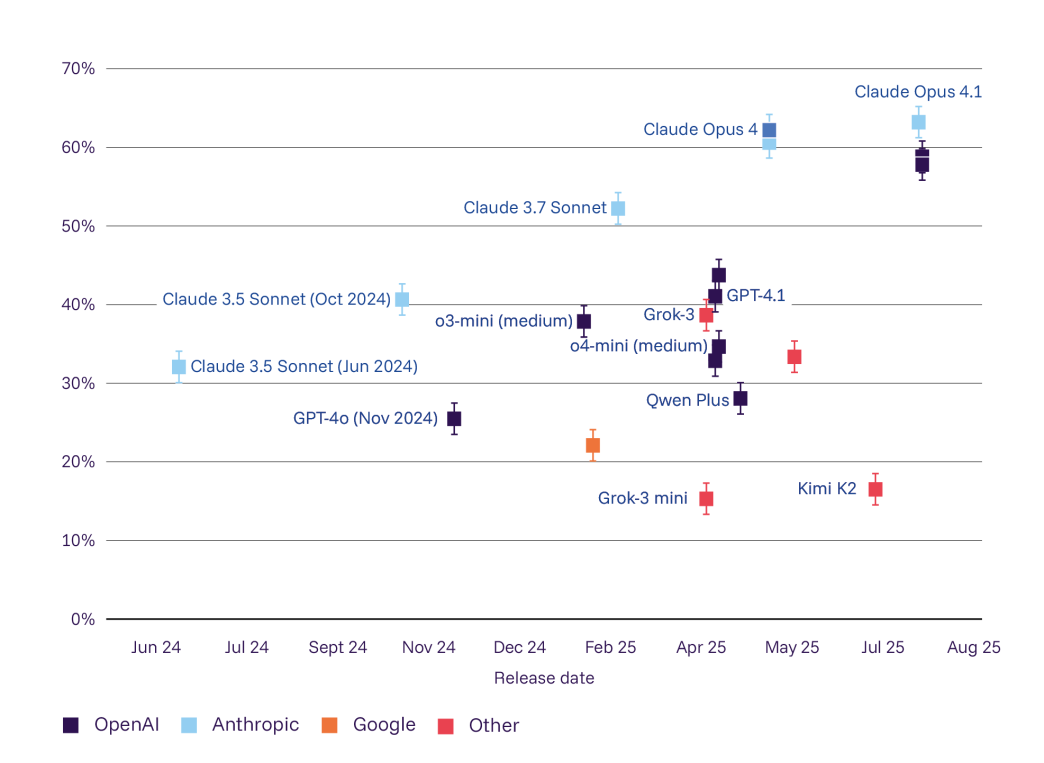As AI technology continues to advance, a pressing question lingers: Will AI replace Data Scientists? This blog post explores the evolving landscape where AI automates certain tasks while leaving critical responsibilities firmly in human hands. Get ready to uncover the balance between automation and human expertise in the data science realm.
We'll delve into which tasks AI can tackle—from data cleaning to predictive analytics—and highlight the irreplaceable skills that Data Scientists bring to the table. By the end, you'll have a clearer understanding of how AI and Data Scientists can coexist and thrive together in this rapidly changing environment.
Table of contents
AI vs. Data Scientists: A Match or a Mismatch?
Data scientists are caught in a whirl of emotions as AI's role in their profession evolves. According to a LinkedIn post by Andres Vourakis, the field isn't vanishing; rather, it’s transforming. AI can automate tasks like coding and model building, but lacks the human touch needed to solve complex problems, spot biases, and communicate insights effectively. Many data scientists view AI as a tool that enhances their work, enabling them to focus on more strategic and analytical endeavors.

Credits: FastCompany.com
Despite AI's growing presence, uncertainty looms over the job market. A survey by Indeed and Glassdoor found that 35% of tech workers, including data scientists, fear AI might overtake their roles. Yet, only 17% are actively job hunting, suggesting a nuanced outlook. The sentiment leans toward adaptation; professionals are urged to enhance skills in AI model interpretation and ethical AI to stay relevant.
The narrative isn't all gloom. A report from Fast Company predicts a net gain of jobs, with AI crafting new roles and opportunities. Data scientists are seen as key players in managing AI technologies, where collaboration, not replacement, is the focus. As the AI landscape evolves, the consensus is clear: embrace AI as a partner that augments human expertise, rather than a competitor aiming to replace it.
Which Data Scientist responsibilities AI can handle
AI is revolutionizing the daily tasks of data scientists by handling routine processes. According to the Role of AI in Data Science, AI tools can manage data cleaning, sorting, and summarization, freeing up data scientists to focus on deeper analysis. For instance, AI systems can quickly rectify errors, remove duplicates, and ensure correct formatting, tasks that once consumed significant time.
Additionally, AI is stepping in to support predictive analytics and report generation. As noted by Timpone and Yang, AI can analyze historical data to make predictions and automate the creation of reports and visualizations. This shift allows data scientists to concentrate on interpreting insights and making informed decisions based on AI-generated data.
However, the human element remains irreplaceable in interpreting results, strategic decision-making, and dealing with complex problems that require domain expertise. AI excels in handling data processing and basic analysis, but the nuanced understanding and creativity of data scientists are still crucial in leveraging AI-driven insights effectively.
What parts of Data Scientist jobs AI cannot replace
While AI is reshaping the data science landscape, certain aspects of a Data Scientist's role remain irreplaceable. For example, skills such as critical thinking and problem-solving enable Data Scientists to explore complex questions and derive insights that machines often overlook. According to a study, human intuition is key in interpreting data within its business context, guiding strategic decisions that AI lacks the capacity to understand fully.
Moreover, domain expertise plays a significant role in effective data interpretation. Data Scientists bring specialized knowledge about their industries, which allows them to make informed decisions from data analysis. Additionally, ethical considerations around data usage, such as recognizing biases, require a level of human judgment that automated systems simply cannot replicate (HBR). Lastly, the ability to communicate complex findings to non-technical stakeholders hinges on empathy and understanding—qualities that AI does not possess.
How Data Scientists Can Adapt to the AI Era
With AI technology rapidly evolving, the role of data scientists is shifting dramatically. Traditionally focused on data analysis and modeling, data scientists now need to embrace software engineering and AI integration. According to The Muse, understanding machine learning and deep learning methodologies will significantly enhance data scientists' analytical skills, allowing them to work more effectively with AI frameworks like TensorFlow and PyTorch.

Credits: Data Science to Applied AI Roadmap
To remain competitive, data scientists must broaden their skill sets. This includes developing proficiency in data engineering, MLOps, and the latest AI technologies. As highlighted by Business Insider, gaining hands-on experience in AI operations and building a strong network will help data scientists navigate their career transitions effectively. Lifelong learning and adaptability to new tools and methodologies are vital for success in this evolving landscape.
Current job market for Data Scientists in the US
The job market for data scientists in the U.S. is experiencing a surge, with projected growth of 36% from 2023 to 2033, equating to approximately 20,800 new job openings each year. Diverse sectors, including healthcare, finance, and retail, are increasingly seeking data expertise as they embrace data-driven decision-making (U.S. Bureau of Labor Statistics).

Credits: Image by People in AI
Currently, there are about 245,900 data scientist positions, expected to rise to around 328,300 by 2034. This growth signals strong demand, particularly for candidates with skills in machine learning and AI, as organizations aim to leverage advanced analytics for improved performance (O*NET OnLine).
Is Data Scientist AI safe?
The role of a data scientist is not entirely at risk of being replaced by AI, though some routine tasks like data cleaning and basic analysis are increasingly automated by AI tools. According to Natassha Selvaraj, while AI can manage certain functions, it cannot fully replicate the strategic thinking and nuanced understanding needed in data science.

Credits: International AI Safety Report
Data scientists are encouraged to evolve their skills in areas where AI falls short, such as domain expertise, ethical considerations, and complex problem-solving. As highlighted by Bharat Chandar, the landscape is shifting but not diminishing; AI is seen more as a tool that enhances the work of data scientists rather than replacing them entirely.
The consensus among experts suggests that data scientists should leverage AI advancements to focus on more strategic, high-level analytical tasks. As Andres Vourakis emphasizes, adapting to AI technologies and expanding skill sets to include AI integration will keep data scientists relevant and valued in the ever-evolving job market.
Recruiter's Guide to Hiring Data Scientists
In the evolving field of data science, recruiters should prioritize AI-related skills when hiring. Look for expertise in Generative AI, as it's becoming a central piece in data science (HubGeniusAI). Knowledge of MLOps and data ethics is also important, as these areas ensure models are operationally sound and ethically compliant. Adaface's Generative AI Test can help evaluate candidates' proficiency in these new technologies, providing a detailed assessment of their capabilities.

Credits: HubGeniusAI
To screen Data Scientists effectively, consider their adaptability and problem-solving skills. The Prompt Engineering Test from Adaface assesses candidates' ability to design prompts that generate reliable outputs from AI models. This is crucial for roles requiring interaction with Large Language Models (LLMs). Additionally, Adaface offers a Data Science Assessment Test that evaluates key skills like data manipulation and statistical analysis, ensuring candidates are prepared for the technical demands of data science roles.
Prompt Engineering Test
Generative AI Test
Data Science Assessment Test
The Bright Future of Data Science with AI
The landscape of data science is blooming with opportunities thanks to AI. Professionals can embrace exciting roles that blend creativity with technical prowess, allowing for deeper insights and more strategic decision-making. According to the World Economic Forum, the rise of AI is projected to create 170 million new jobs globally by 2030, enhancing the demand for skilled data scientists who can leverage AI technologies.
For those hiring in this space, AI is not a threat but a transformative force that enhances productivity and innovation. Companies that integrate AI into their data practices are likely to see increased efficiency and a richer talent pool. As highlighted in Fast Company, this collaboration fosters a positive environment where data scientists can focus on complex problem-solving and creative solutions.
So, whether you're an aspiring data scientist or an employer looking for talent, the future is filled with promise. Embrace AI as a partner that amplifies human skills, unlocking new possibilities and driving growth. The journey is just beginning, and there’s much to look forward to!

40 min skill tests.
No trick questions.
Accurate shortlisting.
We make it easy for you to find the best candidates in your pipeline with a 40 min skills test.
Try for freeRelated posts



